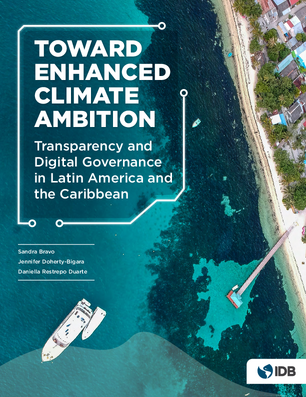The Challenge
Data related to climate is varied and collected by multiple agencies in any given country, such as: meteorological services, regional and urban planning, natural resource and park management, and mapping agencies.
Data related to climate is varied and collected by multiple agencies in any given country, such as: meteorological services, regional and urban planning, natural resource and park management, and mapping agencies.
The Open Up Guide for Climate action helps establish clarity and direction for governments looking to improve their climate-related open data publication.

We hope the guide is used by national governments and institutions who are looking to prioritize and publish the most important climate-relevant data in their local contexts. We strongly believe that it is beneficial for governments to open up climate action data directly and hope that the Open Up Guide and its different versions help improve their climate-data publication.

Climate data governance is a key step in taking advantage of the opportunities offered by innovative financial mechanisms, based on the provision of data and indicators that can attest to the achievement of a country’s climate targets and commitments. For example, green bonds require the bond issuer to communicate environmental or climate sustainability objectives to investors in a transparent manner, as well as to undergo external evaluation and review. This report was prepared by the Inter- American Development Bank (IDB) and the United Nations Environment Programme (UNEP). The research, which aimed to compile key milestones in the transparency agenda, began in February 2021 and concluded its editing phase in 2023. The primary objective of the report is to underscore the strategic synergies between the climate change, digitalization, transparency, and data accessibility agendas. This will enable the operationalization of the standards proposed under the Paris Agreement’s Enhanced Transparency Framework (ETF) and capitalize on the achievements made in relation to digitalization and data accessibility. These agendas present a unique opportunity to promote sustainable development through an informed and empowered citizenry.
From our “Open Up Guide for Climate Action” to a recent collaboration with Uruguay’s Ministry of Environment, AGESIC and with some support from AIDB, a series of talks for an Open Climate Data Challenge there’s plenty to take inspiration from.
Below is a comprehensive list of the Open Data Charter’s major climate action work for your reference:
You can also visit our blog for more articles and writings on climate action.
Contact us for any information you need